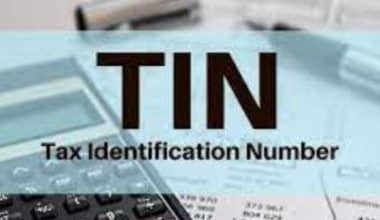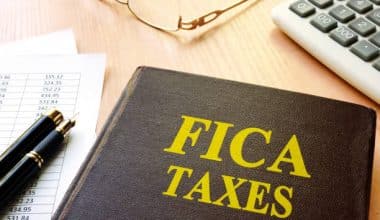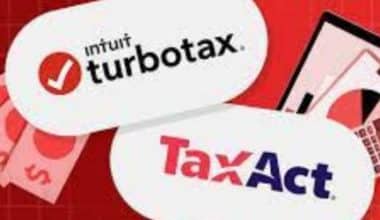Many costs incurred by a small business can be deducted from their taxable income as tax deductions, which can help them pay less in income tax. Many tax deductions can be claimed, regardless of the nature of your business or the sector you work in. You might be shocked to learn that straightforward business costs like your phone bill or new computer can be written off from your taxable income. Determine which small business tax deductions you are eligible for by using the following checklist.
Small Business Tax Deductions
A tax deduction, also known as a tax write-off, is any business expense that the IRS permits you to claim to reduce your taxable income. These are typically the expenses related to doing business. Simply deducting your allowable expenses from your income will help you pay less in taxes to the IRS. Tax deductions for businesses fall under distinct reporting categories, including those for home offices, advertising, business travel, and more.
Although there are numerous tax deductions available, taxes are a necessary evil. To qualify for these deductions, you must demonstrate the related expenses and fees, which necessitates maintaining accurate, detailed records and receipts. An eligible expense that you can subtract from your company’s gross revenue is a small business tax deduction. Increasing your tax deductions can reduce the annual tax burden on your business. A business expense has to be both usual and required to be deducted.
Any cost that is typical and accepted in your industry is considered an ordinary expense. A cost that is beneficial and appropriate for your line of work is necessary.
How Do Business Tax Deductions Work?
Small business tax deductions lower your tax obligation by lowering your taxable income, which is a component of your tax return. A professional, such as a CPA, should be consulted to learn how to take advantage of all the available deductions. Knowing which tax breaks are available and how to use them for your small business is the responsibility of an accountant.
What Can Be Written off as Business Expenses?
Your annual tax liability can be reduced by first figuring out which small business tax deductions you are eligible to claim. All business entities, including sole proprietorships, partnerships, corporations, and LLCs, can profit from claiming common tax deductions; however, you should consult your tax advisor about how to report them.
Here are a few typical tax breaks for small businesses to take into account. Of course, the best way to determine if this is the best course of action for your company is to speak with a tax expert.
#1. Business Meals
You can write off 50% of qualified food and beverage expenditures as a small business. For the meal to be considered, it must be connected to your line of work, and you must maintain the following records:
- The time and place of the meal
- Business connection with the individual or individuals you dined with
- The overall price of the meal
Maintaining your receipt and making notes about the meal’s specifics on the back of it is the simplest way to keep track of business meal expenses.
The IRS stipulates the following conditions for deduction eligibility:
- The meal must be attended by an employee or taxpayer.
- The meal cannot include anything “lavish or extravagant.”
- The cost has to be reasonable and essential to operating your business.
- The meals may be given to clients, customers, consultants, or other business associates—potential or actual—for business purposes.
#2. Startup Expenses
As an investment in your company, the costs associated with starting it up are regarded as capital expenditures. Advertising, staff training, inventory, office space (or your home office), and other overhead costs are frequently included in small business startup costs. Industry-specific startup costs and overhead costs can also affect these costs.
Amortization, a process that allows capital expenses to be written off over several years, is what allows you to evaluate your company’s profitability each year.
#3. Travel Costs for Business Purposes
All travel-related expenses, such as airfare, lodging, rental car fees, tips, dry cleaning, meals, and more, are tax deductible. A complete list of tax-deductible business travel expenses is available on the IRS website. Your trip must satisfy the following requirements to count as work-related travel:
- The journey must be essential to your work.
- You must leave your tax home—the city or region where your business is located—on this trip.
- In addition to requiring you to sleep or rest while traveling, you must be spending more time away from your tax home than it would take for a typical workday.
#4. Car Use for Work Purposes
You may deduct all operating and upkeep expenses if you only use your car for business-related activities. You may only deduct expenses incurred in connection with your use of a vehicle for business purposes if you also use it for personal purposes. By subtracting the actual miles you drive for work, you can claim the mileage you use for your vehicle.
#5. Business Insurance
When filing your taxes, you can write off the cost of your business insurance. If you have a home office or utilize a portion of your house for work, you may be able to deduct the cost of your renter’s insurance as part of your home office write-offs.
#6. Home Office Expenses
According to new, simpler IRS regulations for home office expenses, small businesses and independent contractors operating from their homes can deduct five dollars per square foot of the space used for business, up to a maximum of 300 square feet. To be eligible for a tax deduction, your workspace must be used solely for work-related purposes (you cannot deduct the square footage of your dining room if you work there during the day), and you must regularly use the home office as your main location for carrying out business.
#7. Care for Children and Dependents
Tax deductions are available for costs associated with providing for dependent children or adults. You can deduct the costs related to caring for your children if they are under the age of twelve. Adult dependents include spouses and some other related adults who are incapable of taking care of themselves because of physical or mental impairment. As a result, they are qualified for tax deductions.
#8. Medical Expenses
The cost of medical care, such as visits to the doctor, prescription medications, and in-home care, can be claimed in addition to the insurance premiums. Your medical and dental insurance premiums may be written off if you are self-employed and pay for your health coverage.
#9. Energy Efficiency Expenses
You may be eligible for tax credits for home improvements that make your house more energy efficient. Solar panels, solar water heaters, and wind turbines are just a few examples of alternative energy technology that you can deduct 30% of the cost of your home. The IRS website provides more information on home energy tax credits.
#10. Office Supplies
You require specific supplies to run your business, whether you operate from home or an office. Because of this, the IRS permits proprietors of small businesses to deduct the cost of office supplies from their taxes. Printer paper, markers, pencils, and other writing instruments are a few examples of office supplies that can be deducted from income for business purposes. Additionally, it contains computer software that is crucial to your company.
For your business to remain financially sound, having the right small business insurance is essential. When signing a lease for office space or applying for a business license, you may be required to provide certain types of business insurance. Thankfully, business insurance premiums are deductible from income.
The following insurance policies typically qualify for a tax deduction:
- General liability insurance
- Professional liability insurance
- Commercial property insurance
- Business interruption insurance
- Cyber liability insurance
- Workers’ compensation insurance
- Commercial auto insurance
- Unemployment insurance
- Health and life insurance
#12. Office Rent
Rent payments made by small business owners for office space are deductible from their taxable income. In addition to the cost of rent for the actual building space, you may also write off the expense of a business parking garage.
A crucial distinction between the home office deduction and the rent deduction should be made. Only business owners who pay rent on a real estate location other than their home are eligible for this deduction.
#13. Internet and Phone Bills
Your internet and phone plan costs may be written off against federal income taxes due in 2022, according to the IRS. The only requirement is that daily use of your phone and internet must be necessary for your business to function.
Additionally, you can deduct the price of any Wi-Fi you have to pay for while doing business-related travel or lodging. However, when you use your business phone and internet for personal use as well, things can become a little more challenging with this deduction.
What Can Be Written off as Business Expenses?
When submitting their income tax returns, small businesses, independent contractors, and business owners can deduct a variety of business expenses, including:
- Rent, utilities, and other office costs.
- Hardware and software for offices, among other things.
- Health insurance premiums
- Business phone bills
- Courses for continuing education
- Parking for business-related trips
- Travel costs associated with conducting business, such as lodging, transportation, and flights.
What Deductions Can I Claim as a Small Business Owner?
- Home Office Deduction
- Business Use Of Your Car
- Employee Wages And Benefits
- Travel Expenses
- Office Supplies And Equipment
- Advertising And Marketing
- Professional Fees
- Depreciation
Do Small Businesses Get Tax Deductions?
Small businesses, independent contractors, and business owners can deduct a variety of business expenses, such as car expenses and mileage when they file their income taxes. expenses related to the office, such as rent and utilities. Office supplies, including computers, software, etc.
What Is 20 Percent Small Business Tax Deductions?
Taxable income must not exceed $182,100 for single filers or $364,200 for married couples filing jointly in 2023. Your pass-through deduction equals 20% of your qualified business income (QBI) if your income is less than this limit. The deduction enables qualified taxpayers to write off up to 20% of their QBI as well as 20% of qualified dividends from publicly traded partnerships (PTPs) and real estate investment trusts (REITs).
How Can I Reduce My LLC Taxes?
LLC owners can reduce their taxes in the following ways:
- Reclassifying your taxes.
- Claiming tax deductions for business.
- With the aid of self-directed retirement accounts.
- Subtracting the cost of health insurance.
- Using the losses from your LLC to lower taxable income.
Conclusion
Maintaining a record of your expenses throughout the tax year is crucial if you want to be able to claim small business tax deductions. Maintaining meticulous records facilitates tax filing and guarantees that you have the necessary supporting documentation in the event of an audit. As you finish the small business tax deduction checklist and file your taxes, take a look at your commercial insurance program.
Related Articles
- BUSINESS TAX DEDUCTIONS: What Is It, Small Deductions, Vehicle & Checklist
- WHAT ARE TAX DEDUCTIONS: Examples, Donations, Standard & Expenses Tax Deductions
- HOW TO REDUCE TAXABLE INCOME: Best Simple Strategies!
- HOME OFFICE TAX DEDUCTION: All You Need to Know






